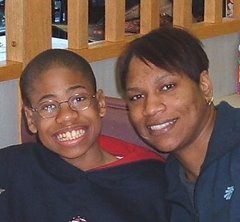Orlando, Fla. - The Alexis Foundation launched a national database to research the connection between thimerosal and autism. This nonprofit organization, which was founded by parents with autistic children and related disabilities, is using information in the database to explain why some children received more doses of thimerosal than others.
Thimerosal, which contains 49.6 percent ethylmercury, is believed to be the cause of autism. Ethylmercury is a highly toxic neurotoxin. The symptoms of autism and the symptoms of mercury poisoning are identical.
Prior to 1986, children received a total maximum dose of 100 micrograms of ethylmercury in the first two years of life. By 1991, this dose was up to 246 micrograms of ethylmercury in the first two years of life, an increase of 147 percent. This increase came from the introduction of the Haemophilus Influenza Type B (Hib) and the Hepatitis B (Hep B) vaccines. Both vaccines contain thimerosal.
Despite its known neurotoxicity and its use in children, thimerosal has not been tested for safety. The Mercury-Free Act of 2004 introduced by U.S. Representatives Dave Weldon, MD (R-FL) and Carolyn Maloney (D-NY) would reduce human exposure to mercury through vaccines. It has yet to pass.
The Alexis Foundation is asking for assistance of families living with autism to forward their child's vaccine information to help research the link between autism and thimerosal. The foundation will use this information to find out if mistakes were made during the manufacturing process and to determine if incorrect amounts of thimerosal were combined in childhood vaccines. This database could also show if thimerosal is currently being used as a preservative in childhood vaccines.
For additional information and to input vaccine information please visit http://www.alexisfoundation.org/ or e-mail admin@alexidsfoundation.org.
For more information and resources on autism, please visit:
http://www.autismconcepts.com/.
Forget what you haven't heard… Family site shares news, resources, announcements and free or low-cost ways to help us manage day-to-day living with autism.
Crystal Brown

About Me

- Crystal
- AutismConcepts.com and Child-Autism-Parent-Cafe.com share a large collection of useful autism information, resources, and how-to articles written by authors who are touched by autism, offering practical solutions to families. Particularly minority and underserved families and caregivers who may not know what to do or where to go for help.
MJ And Me

Blog Archive
-
▼
2005
(194)
-
▼
August
(15)
- Biomedical treatments are helping children with au...
- NAA and Safe Minds Sponsor Workshop to Discuss Env...
- Parents of austisic child ask for privacy
- Recent Handcuffing Of 5-Year Old Black Girl Was No...
- Gender hormones may lend to social disorder therapies
- Foundation Launches Database To Link Thimerosal An...
- Bridging Autism's Distance
- Chelation therapy has critics, champions
- Autistic boy dies during controversial treatment
- August 24 DC Protest - Why Are Atypical Drug Users...
- August 24 DC Protest – Vaccine-Autism Activists Jo...
- New Study Shows ‘Compelling Evidence’ of Major Int...
- Mercury and Tuna: U.S. Advice Leaves Lots of Quest...
- New UW study documents autistic regression
- Ruling supports autistic student, District told to...
-
▼
August
(15)